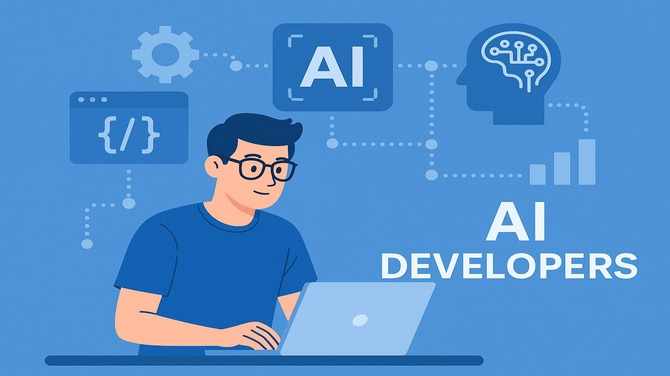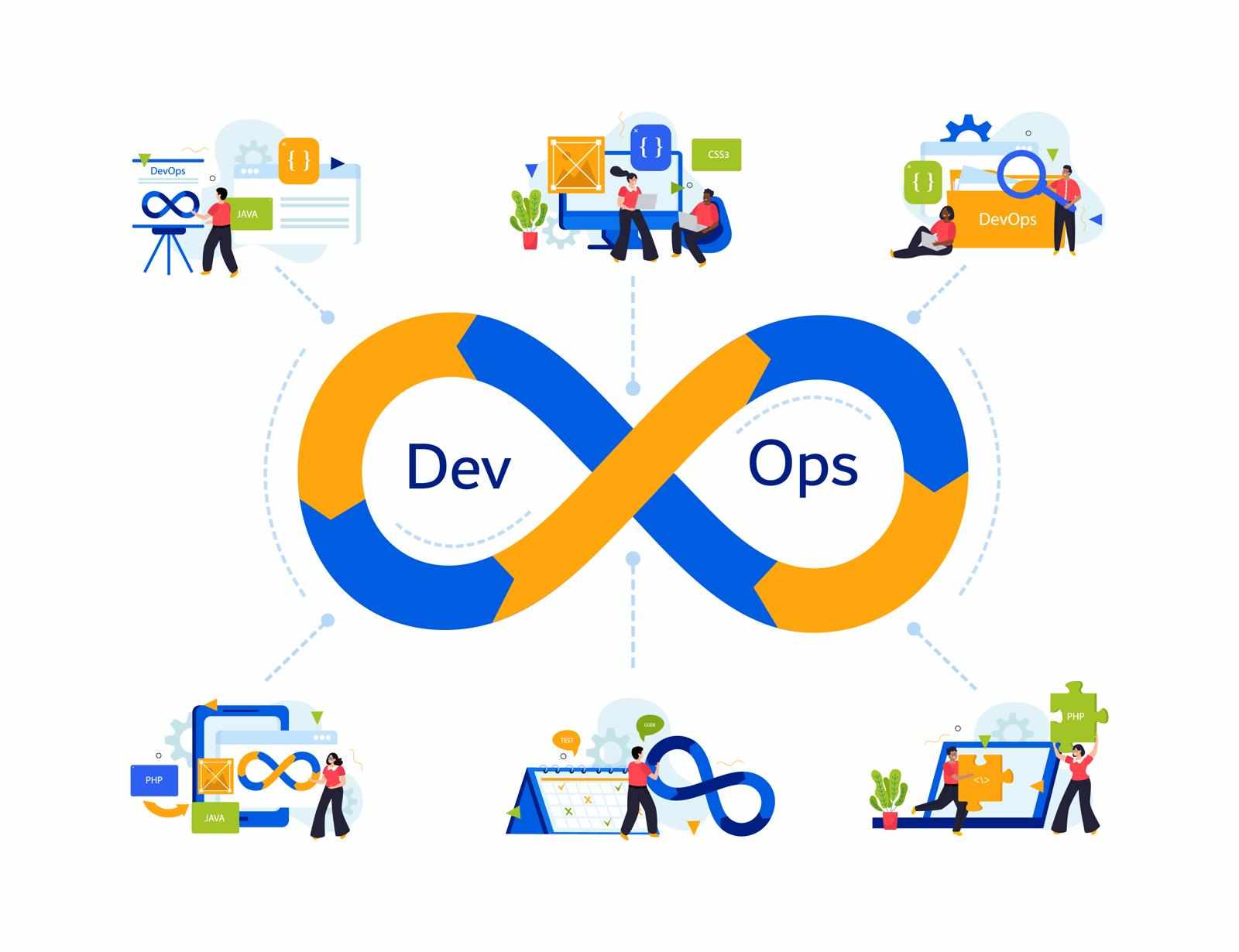
Non-Banking Financial Companies (NBFCs) face unprecedented challenges in today's rapidly evolving financial landscape. Traditional lending models are giving way to intelligent automation, and companies that fail to adapt risk losing market share to tech-savvy competitors. The solution lies in strategic talent acquisition, particularly the need to hire AI developers who can drive digital transformation and operational excellence.
The NBFC sector has experienced remarkable growth, with assets under management reaching new heights across India and global markets. However, this growth comes with increased complexity in risk management, customer service, and regulatory compliance. Smart NBFCs recognize that artificial intelligence isn't just a technological upgrade—it's a fundamental shift that requires skilled professionals to implement and manage effectively.
Recent industry data reveals that NBFCs embracing AI technologies are achieving significant operational improvements and cost reductions. Companies investing in AI talent report enhanced decision-making capabilities, improved customer satisfaction, and stronger competitive positioning in crowded markets.
Understanding the NBFC Digital Transformation Landscape
The financial services sector is witnessing a technological revolution that particularly impacts NBFCs. These companies traditionally relied on manual processes and legacy systems, but market pressures now demand sophisticated automation and intelligent decision-making capabilities. Modern NBFCs must compete not only with traditional banks but also with fintech startups offering streamlined digital experiences.
Customer expectations have evolved dramatically, with borrowers expecting instant loan approvals, personalized products, and seamless digital interactions. Traditional NBFC operations simply cannot meet these demands without significant technological enhancement. The companies that successfully navigate this transformation are those that invest in building strong AI capabilities through skilled talent acquisition.
Banks and NBFCs have begun to embrace new-age technologies such as AI and ML to automate and streamline operations, recognizing that manual processes are no longer sufficient for competitive success. This shift requires specialized knowledge that only experienced AI developers can provide.
Market Dynamics Driving AI Adoption
The competitive landscape for NBFCs has intensified significantly over the past few years. Regulatory changes, including stricter lending guidelines and increased risk weights for unsecured loans, have forced companies to optimize their operations and improve risk assessment capabilities. These challenges create opportunities for organizations with strong AI implementations.
Consumer behavior has also shifted toward digital-first experiences, with borrowers increasingly comparing NBFCs based on application speed, approval times, and overall user experience. Companies without AI-powered systems find themselves at significant disadvantages in attracting and retaining customers.
The Critical Need to Hire AI Developers in NBFCs
The talent shortage in AI and machine learning has created a competitive hiring environment that particularly impacts NBFCs. While 75% of companies are adopting AI, only 35% of talent have received AI training in the last year. This gap between demand and supply makes it crucial for NBFCs to act quickly in securing skilled professionals.
NBFCs face unique challenges in attracting AI talent, as they often compete with technology companies and established banks that offer higher compensation packages and more advanced technical infrastructures. However, NBFCs can leverage their agility and growth potential to attract developers interested in making significant impact on business operations.
The complexity of NBFC operations requires AI developers with specific domain knowledge. These professionals must understand lending processes, risk assessment methodologies, and regulatory requirements while also possessing technical skills in machine learning, data analysis, and software development.
Skills Gap Impact on NBFC Operations
Only 26% of companies have developed the necessary set of capabilities to move beyond proofs of concept and generate tangible value from AI implementations. This statistic highlights the critical importance of hiring experienced AI developers who can translate technical possibilities into practical business solutions.
NBFCs without proper AI talent often struggle with implementation timelines, cost overruns, and systems that fail to deliver expected benefits. These failures can be costly both financially and competitively, as they delay critical improvements while competitors advance their capabilities.
Strategic Benefits of AI Implementation for NBFCs
Successful AI implementation transforms multiple aspects of NBFC operations, from customer acquisition to risk management. The most significant benefits include enhanced credit scoring accuracy, automated document processing, and improved fraud detection capabilities. These improvements directly impact profitability and customer satisfaction.
Gartner predicts that by 2025, 72% of customer interactions will involve emerging technologies such as chatbots, leading to a 33% reduction in contact center operational costs. This projection demonstrates the substantial cost savings that NBFCs can achieve through strategic AI implementation.
AI-powered systems also enable NBFCs to process loan applications faster and more accurately than traditional methods. Automated underwriting systems can analyze multiple data sources simultaneously, reducing approval times from days to minutes while maintaining or improving risk assessment quality.
Revenue Enhancement Through AI-Driven Services
NBFCs with strong AI capabilities can offer personalized financial products based on individual customer profiles and behavior patterns. This personalization increases customer satisfaction and loyalty while enabling premium pricing for customized services. AI systems can also identify cross-selling opportunities that human agents might miss.
Predictive analytics capabilities allow NBFCs to anticipate customer needs and proactively offer relevant products and services. This approach significantly improves conversion rates and customer lifetime value compared to traditional reactive marketing strategies.
Machine Learning Applications in NBFC Operations
Machine learning algorithms excel at pattern recognition and predictive analysis, making them ideal for various NBFC functions. Credit risk assessment benefits enormously from machine learning models that can analyze alternative data sources and identify subtle patterns that traditional scoring methods miss.
Customer segmentation becomes more sophisticated with machine learning, enabling NBFCs to create detailed customer profiles and targeted marketing campaigns. These systems can process vast amounts of customer data to identify behavioral patterns and preferences that inform product development and marketing strategies.
Fraud detection systems powered by machine learning can identify suspicious activities in real-time, protecting both the NBFC and its customers from financial losses. These systems continuously learn from new data, improving their accuracy over time while reducing false positives that inconvenience legitimate customers.
Operational Efficiency Through Automation
AI-driven automation can handle routine tasks such as document verification, data entry, and basic customer inquiries. This automation frees human employees to focus on complex problem-solving and relationship management activities that require emotional intelligence and creativity.
Process optimization through AI can identify bottlenecks and inefficiencies in NBFC operations, suggesting improvements that reduce costs and improve customer experience. These insights often reveal opportunities for significant operational enhancements that weren't apparent through traditional analysis methods.
Building Effective AI Development Teams
Successfully building AI capabilities requires more than just hiring individual developers. NBFCs must create comprehensive teams that include data scientists, machine learning engineers, and AI specialists with financial services experience. This multidisciplinary approach ensures that AI implementations address real business needs rather than pursuing technology for its own sake.
Team composition should balance technical expertise with domain knowledge. AI developers who understand NBFC operations can design systems that integrate seamlessly with existing processes while delivering maximum business value. This combination of skills is rare and valuable in the current market.
Creating effective AI teams also requires supportive organizational culture and infrastructure. NBFCs must invest in modern development tools, cloud computing resources, and continuous learning opportunities to attract and retain top AI talent.
Talent Acquisition Strategies for NBFCs
NBFCs can differentiate themselves in the competitive AI talent market by emphasizing career growth opportunities and the chance to make significant business impact. Many AI developers are attracted to roles where they can see direct results from their work, making NBFCs appealing for professionals who want to drive transformation.
Competitive compensation packages remain important, but NBFCs should also highlight non-monetary benefits such as flexible work arrangements, professional development opportunities, and equity participation. These benefits can help level the playing field with larger technology companies.
Implementation Roadmap for AI Transformation
Successful AI transformation requires careful planning and phased implementation. NBFCs should begin with pilot projects that demonstrate clear value and build internal confidence in AI capabilities. These initial successes create momentum for larger implementations and help secure executive support for continued investment.
The implementation roadmap should prioritize use cases with the highest potential return on investment and lowest implementation complexity. Common starting points include customer service chatbots, basic fraud detection systems, and automated document processing applications.
As AI capabilities mature, NBFCs can tackle more complex applications such as sophisticated risk modeling, predictive analytics, and personalized product recommendations. This graduated approach allows organizations to build expertise while delivering incremental value throughout the transformation process.
Change Management and Cultural Transformation
AI implementation often requires significant changes to existing processes and job roles. NBFCs must carefully manage these transitions to maintain employee morale and operational stability. Clear communication about AI benefits and employee retraining programs can help smooth the transition.
Cultural transformation involves shifting from traditional risk-averse approaches to more data-driven decision-making. This change requires leadership commitment and consistent messaging about the importance of innovation and continuous improvement.
Competitive Advantage Through AI Innovation
NBFCs that successfully hire AI developers and implement intelligent systems gain sustainable competitive advantages that are difficult for competitors to replicate. These advantages compound over time as AI systems learn and improve from ongoing operations.
43 percent of the respondents indicated more operational efficiencies thanks to AI, demonstrating measurable benefits that translate directly to improved profitability and customer satisfaction. NBFCs with strong AI capabilities can offer superior customer experiences while maintaining healthy profit margins.
The competitive advantage extends beyond immediate operational improvements. NBFCs with mature AI capabilities can adapt more quickly to market changes, regulatory requirements, and customer preferences. This agility becomes increasingly valuable in rapidly evolving financial markets.
Future-Proofing NBFC Operations
AI implementation helps NBFCs prepare for future challenges and opportunities. As regulatory requirements become more complex and customer expectations continue rising, organizations with strong AI capabilities will be better positioned to adapt and thrive.
The investment in AI talent and technology pays dividends over time as systems become more sophisticated and capable. NBFCs that begin their AI journey today will have significant advantages over competitors who delay implementation.
Measuring AI Success and ROI
Successful AI implementation requires clear metrics and ongoing performance monitoring. NBFCs should establish baseline measurements before implementation and track improvements in key performance indicators such as loan approval times, customer satisfaction scores, and operational costs.
Return on investment calculations should include both direct cost savings and revenue enhancements. Many AI benefits, such as improved customer retention and enhanced risk management, provide value that extends beyond immediate financial returns.
Regular performance reviews and system optimization ensure that AI implementations continue delivering value as business conditions change. This ongoing attention to performance optimization maximizes the return on AI investments while identifying opportunities for further enhancement.
The future of NBFCs belongs to organizations that successfully integrate AI capabilities into their core operations. Companies that hire AI developers and build comprehensive artificial intelligence systems today will lead tomorrow's financial services landscape, while those that delay risk becoming obsolete in an increasingly automated industry.




















Write a comment ...